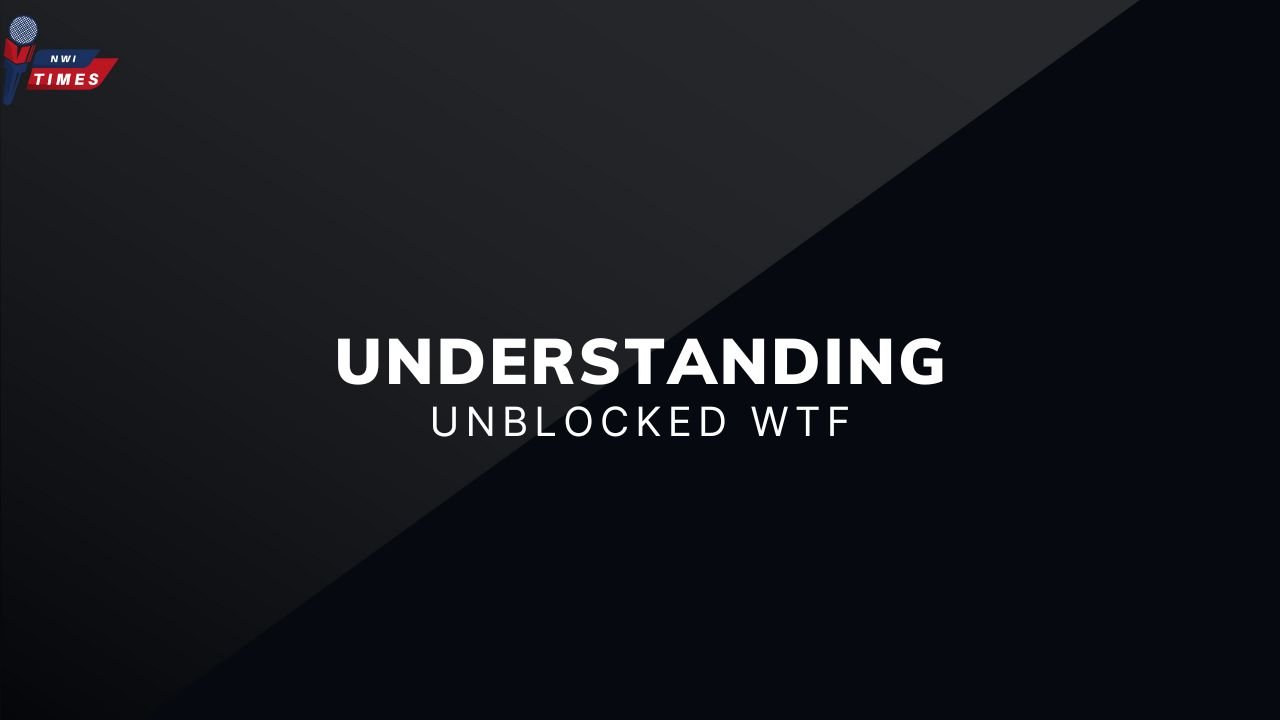Unblocked WTF is a term that might be unfamiliar to some but is becoming increasingly relevant in the digital space. This guide will help you understand what it means, why it’s important, and how it fits into the broader context of online content and internet access.
What is Unblocked WTF?
Unblocked WTF refers to websites or online content that is not restricted by firewalls or network filters. These filters are often used by schools, workplaces, or other institutions to block access to certain websites or types of content. When content is “unblocked,” it means that users can access it freely without encountering these restrictions.
Why is Unblocked WTF Important?
The ability to access unblocked content can be crucial for various reasons. For students, it can mean access to educational resources that might be blocked. For professionals, it can provide access to tools and information needed for their work. For general users, it can offer the freedom to explore the internet without limitations.
How Does Unblocking Work?
Unblocking content typically involves bypassing restrictions set by network administrators. There are several methods to achieve this:
- Using Proxy Servers: These act as intermediaries between your computer and the internet, masking your IP address and allowing you to access blocked sites.
- VPNs (Virtual Private Networks): VPNs encrypt your internet connection and route it through a server in a different location, making it appear as though you are accessing the internet from a different place.
- Browser Extensions: Some extensions are designed to bypass content filters and allow users to access blocked websites directly from their browser.
Each of these methods has its own benefits and limitations. For instance, VPNs provide a high level of security but may slow down your internet speed. Proxy servers might not offer the same level of encryption as VPNs but can be quicker to set up.
Pros and Cons of Unblocked WTF
| Pros | Cons |
| Access to Restricted Content: Users can reach educational or work-related materials that might be blocked. | Security Risks: Using certain unblocking methods can expose users to security threats if not properly secured. |
| Improved Access to Information: It allows for broader access to information that could be beneficial. | Potential Legal Issues: Some unblocking methods might violate terms of service or local laws. |
| Enhanced User Freedom: Users have more freedom to explore the internet. | Privacy Concerns: Not all unblocking services protect user privacy equally, which can be a concern. |
Why Do Institutions Block Websites?
Institutions often block websites for several reasons:
- Productivity: To minimize distractions and ensure that users focus on their work or studies.
- Security: To prevent access to sites that might pose security risks or contain harmful content.
- Bandwidth Management: To conserve bandwidth by blocking high-usage sites like streaming services or large downloads.
Understanding these reasons can help users navigate the restrictions they face and find appropriate solutions for accessing necessary content.
What are the Risks of Using Unblocked Content?
While unblocking content can be beneficial, it also comes with risks:
- Security Threats: Some unblocking services, especially free ones, may not offer adequate protection against malware or other cyber threats.
- Privacy Issues: Unblocking services may not always safeguard personal data, leading to potential privacy breaches.
- Legal Risks: Accessing certain content through unblocked means might breach terms of service or even local laws.
Users should be cautious and use reputable services when accessing unblocked content to avoid these risks.
How Can You Safely Use Unblocked WTF?
To safely use unblocked content, consider the following practices:
- Choose Reputable Services: Opt for well-known VPNs or proxy servers that offer strong security and privacy features.
- Keep Your Software Updated: Ensure that your browser and any security software are up-to-date to protect against vulnerabilities.
- Understand Local Laws: Be aware of and comply with local regulations regarding internet access and content use.
By following these guidelines, users can better protect themselves while accessing unblocked content.
Common Uses for Unblocked WTF
Unblocked content can be useful in several scenarios:
- Educational Purposes: Students can access academic resources that are otherwise restricted.
- Professional Work: Employees can reach tools or sites necessary for their job.
- Personal Use: Individuals can explore and use the internet more freely without institutional constraints.
Each use case benefits from unblocked content in different ways, highlighting its versatility.
Tips for Finding Reliable Unblocking Solutions
Here are some tips to find effective and reliable unblocking solutions:
- Research: Look for reviews and comparisons of different VPNs or proxy services to find the best option for your needs.
- Trial Versions: Use trial versions of services to test their performance and compatibility before committing.
- Check for Updates: Ensure that the solution you choose is regularly updated to handle new restrictions and security threats.
By taking these steps, users can make informed decisions about which unblocking tools to use.
Conclusion
Unblocked WTF represents a significant aspect of internet use, particularly for those seeking to bypass restrictions placed by institutions. Understanding how it works, the risks involved, and the best practices for safe use can help users make the most of unblocked content while minimizing potential downsides. Whether for educational, professional, or personal purposes, being informed about unblocked content is crucial in navigating the digital world effectively.



